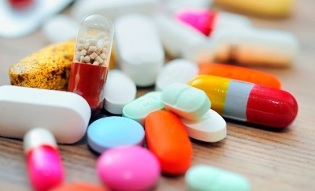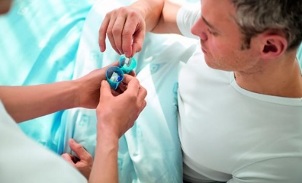
Representatives of the stronger sex in adulthood often suffer from disorders of the genitourinary system. The reasons for the appearance of unpleasant symptoms are very different, so it can be dangerous to choose a medicine for prostatitis in men on your own.
Diseases of an inflammatory nature require an integrated approach, as well as diagnostic studies to prescribe the correct therapy.
Prostatitis and its manifestations
One of the most common diseases in men is prostatitis, it occurs in almost every fifth representative of the stronger sex after 40 years. The disease brings numerous inconveniences and does not allow a man to live a full life. The disease appears as a result of alcohol abuse, a sedentary lifestyle, malnutrition, or promiscuous sexual activity.
The main manifestations of the disease are:
- Severe pulling pain in the lower abdomen.
- Disruption of the excretory system.
- Frequent urge to urinate, especially at night.
- Unpleasant sensations or pain during intercourse.
- Erectile dysfunction or temporary impotence.
- Foreign matter in urine (blood or pus).
Prostate problems appear abruptly or develop within a short period of time (most often within a week). Fearing to go to a specialist, many men look for a suitable medicine for prostatitis without a doctor's recommendation. The pharmacy today offers a wide variety of drugs, and in most cases they do not require a prescription to sell them (with the exception of antibiotics). When looking for the right medicine, it should be remembered that improper therapy or untimely seeking help from a doctor can lead to a complication of the disease. As a result, prostate adenoma, cancer, infertility and impotence develop easily.
The main methods of treatment
Modern pharmacology offers a wide variety of drugs and medicines in the fight against prostatitis. All of them differ in composition, release form and schemes of use. The specialist prescribes drugs for the treatment of chronic prostatitis or in the acute phase, after the patient undergoes a diagnostic examination. You will need to take a blood test, urine test, undergo an ultrasound scan.
At the initial stage of the disease, when the causative agent of the inflammatory process has not been identified, broad-spectrum drugs are prescribed. After receiving the test results, therapy is adjusted, and antibiotics are changed to more highly specialized drugs.
What is the best medicine for prostatitis? A specialist will help you choose the drug, focusing on the type of ailment.
Some examples of common treatment regimens:
- Acute stage of infectious prostatitis (caused by E. coli, Klebsiella, enterococcus, pseudomonas). In this situation, an antibiotic from the group of cephalosporins or tetracyclines is prescribed. To relieve symptoms, pain relievers are used, as well as local suppositories. Complex therapy lasts 2 weeks.
- Chronic form. Prescribed drugs in the form of suppositories or capsules for prostatitis according to a certain scheme. Antibiotics only with exacerbation of the disease, at the stage of remission only phytopreparations.
- Latent prostatitis. Antibacterial therapy is prescribed for 14 days, as well as suppositories for local action on the inflammatory process. If the disease does not cause inconvenience, antispasmodics and pain relievers will not be required.
- Non-infectious prostatitis. Medicines to normalize the outflow of urine, as well as antispasmodics to eliminate urethral spasms and edema. Pain syndrome is relieved by analgesics. The course of treatment is 14 days.
The effectiveness of treatment largely depends not only on what drugs to take for prostatitis, but also on the correctly selected treatment regimen and method of action. The complex is selected by a specialist, taking into account the need to influence the prostate gland and the inflammatory process in a certain way.
The main groups of drugs used by urologists in the treatment of prostatitis:
- Antibiotics.
- Non-steroidal drugs.
- Painkillers.
- Immunomodulators.
- Homeopathy and herbal remedies.
The doctor prescribes several types of pills at once or adds candles with the desired properties to the injections. It is the integrated approach (the use of drugs of different actions) that allows you to achieve a good result and effectively cope with the disease. Some medications will need to be taken until symptoms disappear, others in full. It is necessary to strictly follow all the doctor's recommendations and not violate the established treatment regimen.
Antibacterial drugs

Any inflammatory process is suppressed in the body by antibiotics. Prostatitis caused by infection is no exception. The specialist, after receiving the test results, visual examination, palpation of the prostate and questioning the patient, prescribes a course of antibacterial agents.
A suitable group is selected depending on the type of ailment:
- Fluoroquinols.Used for the treatment of an ailment that has flowed into a chronic form, as well as severe stages. These drugs are effective with few side effects. They quickly relieve inflammation and inhibit the growth of pathogenic bacteria.
- Tetracyclines.Used to treat the acute phase of the disease. The main contraindications for use are leukopenia, as well as kidney pathology, a possible manifestation of an allergic reaction.
- Penicillins.May cause unwanted side effects such as drowsiness, dermatitis, lethargy, tinnitus, and headaches. Therefore, it is used with caution in people with chronic kidney and liver diseases.
Modern drugs quickly begin to act on the problem area and allow you to cope with the inflammatory process in a few days. The urologist prescribes an antibiotic against prostatitis, taking into account the patient's health status, the nature of the disease, as well as age. The specialist takes into account the rating of good proven drugs, as well as the latest developments on the market.
Non-steroidal drugs
Anti-inflammatory medications for the treatment of prostatitis can quickly relieve groin pain, reduce inflammation and significantly alleviate the condition. Immediately after taking, after a few hours, the patient notes a decrease in pain, discomfort and normalization of urination. Non-steroidal anti-inflammatory drugs lower the muscle tone in the groin area and thereby improve well-being.
Many patients, noticing changes for the better, neglect to take other drugs than only aggravate the condition. It should be understood that such medicines are drunk in combination with antibiotics and other means.
Alpha blockers for pain relief
Drugs that belong to this category are prescribed to relax the muscles, as well as improve the process of urine flow. Such drugs are present in almost any treatment regimen, regardless of the form of the disease (acute phase, chronic stage). It should be remembered that the medicines themselves are no longer aimed at treatment, but only blocking and removing the main unpleasant manifestations that do not allow a person to live normally.
Immunomodulators to support the body
In the acute phase or chronic form of prostatitis, one cannot do without drugs that increase the body's defenses. Modulators have an effect on cellular and humoral immunity and contribute to the body's resistance to infections, increase the overall tone, and normalize many processes.
Drugs from this group of drugs are used in combination with other drugs and have an effect already in the first few hours after administration.
Homeopathy and herbal remedies
Herbal medicines or homeopathy are as popular as any other type of medicine. They are safe for the body and at the same time are equally effective.
Medications are offered in the form of suppositories or tablets. They are sold freely, without a doctor's prescription. Before taking it, it is important to carefully read the instructions and follow the recommended doses.
Prostatitis medicine form

All drugs presented in pharmacies differ in their form of release. Not every person knows what is the peculiarity of choosing one or another species. It is more convenient to drink tablets, but the injections act faster and allow a sufficient concentration of the active substance to get to the site of inflammation faster.
The following forms of medication are most commonly prescribed by specialists:
- Injections.One of the best forms of treatment, although it is accompanied by quite unpleasant sensations during the injection. Any treatment regimen for prostatitis almost always begins with the appointment of injections.
- Rectal candles.Due to the local action, it is this form of the drug that can quickly relieve pain, relieve inflammation, and activate blood flow. Suppositories against prostatitis can be with antibiotics, and also contain a non-steroidal anti-inflammatory drug or anesthetic drug.
- Pills.The most convenient form to use, as it is accepted quickly. But through the stomach, drugs enter the bloodstream worse and the effect may not be the same as with other forms of drugs.
The method of treatment and the form of release of the drug by the doctor is selected based on the general condition of the patient, as well as the need for a certain effect. If the therapy was chosen incorrectly or the patient did not follow the established schedule of admission, the treatment regimen, then prostatitis flows into a chronic form. This form of the disease is more difficult to treat and can lead to serious consequences. Therefore, in case of problems with the prostate gland, one should not self-medicate, but immediately contact competent specialists who will take into account all the characteristics of the body and prescribe the correct treatment.























